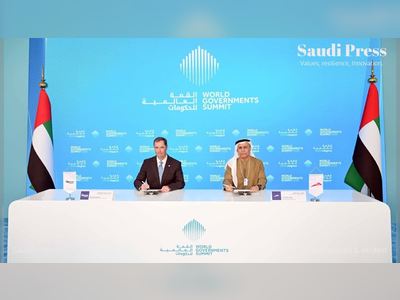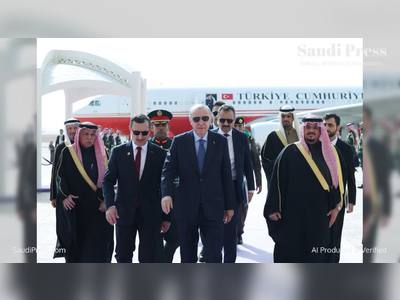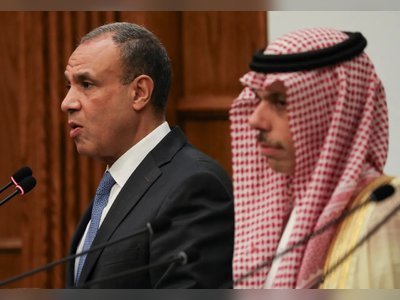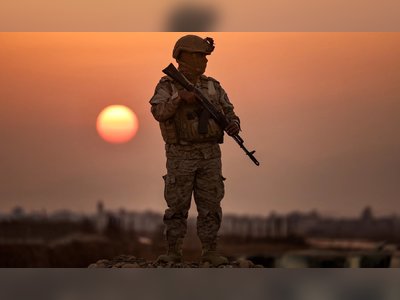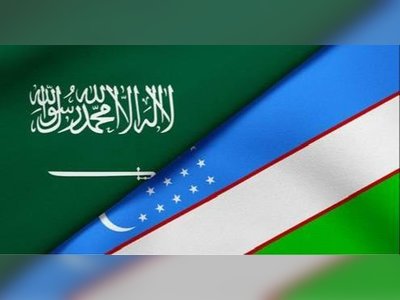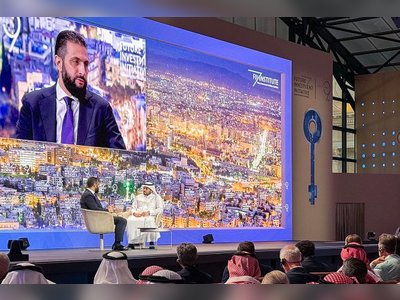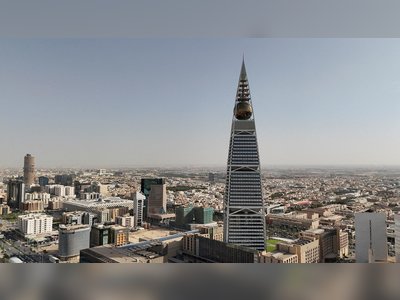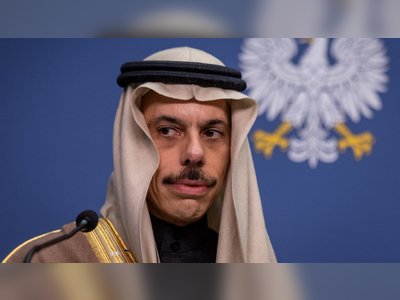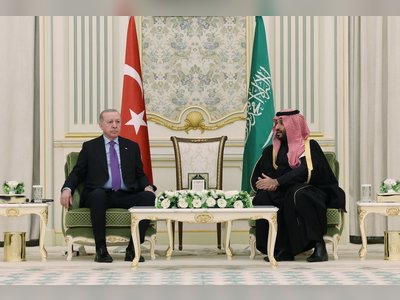
Revolutionizing Travel: Saudi Arabia's Shift to Electric Vehicles and Beyond
Electric vehicles (EVs) are transforming travel globally by reducing carbon emissions, improving air quality, and decreasing pollution.
Saudi Arabia is focusing on EVs as part of its environmental initiatives and shift towards sustainable economic development.
Saudia, the national flag carrier, has agreed to purchase 100 electric-powered jets from Lilium, the developer of the world's first all-electric vertical take-off and landing (eVTOL) jets.
The trend towards EVs is accelerating worldwide as companies and consumers choose greener transportation options.
The use of electric vehicles (EVs) in the Kingdom is growing, with the adoption going beyond personal cars to include e-scooters, buses, and even discussions about aircraft and space travel.
Stephen Crolius, a former climate adviser at the Clinton Foundation and current president of Carbon-Neutral Consulting, advocates for the transition to EVs due to their environmental benefits.
Although educating the public about the advantages of EVs may be a challenge in some societies, Crolius believes the benefits outweigh the disadvantages.
He emphasizes that mass transition to EVs requires specific circumstances to make it happen.
The text discusses the role of government encouragement in the maturation of industries, using the battery industry as an example.
The cost of batteries has significantly decreased over the last 15 years.
The text also mentions the rapid deployment of renewable electricity generation, with companies like CEER and Lucid leading the growth in Saudi Arabia's electric vehicle industry, which is funded by the Saudi Public Investment Fund.
The author expresses uncertainty about whether current renewable energy efforts are enough to address the climate crisis.
Lucid, a US electric car manufacturer, signed a deal with the Public Investment Fund (PIF) of Saudi Arabia two years ago to build a factory in the King Abdullah Economic City.
The PIF currently owns over half of the group in the Kingdom and plans to produce around 450,000 electric vehicles (EVs) by 2030.
The use of EVs in the Kingdom has expanded to include electric buses, which were launched last year as a sustainable alternative to fossil fuel-powered vehicles.
These buses, which have zero emissions, help reduce air pollution and greenhouse gases in urban areas, particularly during the Hajj season when mass transit is heavily used.
An electric bus service connecting the airport to the Prophet’s Mosque in Madinah was launched by Prince Faisal bin Salman bin Abdulaziz during the last Hajj season.
The Kingdom of Saudi Arabia, through its Public Investment Fund (PIF), has invested over $10 billion and holds a 61% stake in US electric car manufacturer Lucid Motors.
PIF aims to produce 500,000 electric vehicles (EVs) annually by 2030 and increase the EV share in Riyadh by 30%.
The route connecting Riyadh and Lucid Motors' production site enables high operational efficiency for electric buses, which offer benefits such as reduced noise, improved energy efficiency, lower maintenance costs, and a smaller carbon footprint.
Saudis are incorporating EVs into their daily commute, with the use of e-scooters also increasing in cities.
E-scooters are an eco-friendly transportation solution in Riyadh, reducing toxic emissions and noise pollution.
The popularity of Gazal's e-scooter services demonstrates the Kingdom's commitment to promoting electric vehicles and sustainable living.
Advancements in battery technology and charging infrastructure make electric vehicles a viable option for companies, including those in public areas like Diriyah, where standard wall outlets are available for EV charging.
Rolls-Royce, a British automobile maker, made history three years ago by producing the world's fastest all-electric aircraft, the "Spirit of Innovation," which reached 628 km per hour.
Warren East, the company's then-CEO, believed electric aircraft could help decarbonize transportation and make "jet zero" a reality.
Compared to traditional commercial planes that use petroleum and synthetic fuel blends, electric planes produce less noise, have lower operating costs, and emit fewer greenhouse gases.
However, the adoption of electric aircraft is hindered by the high cost of adapting the necessary infrastructure.
The text discusses the potential of electric vehicles (EVs) in reducing carbon emissions and promoting sustainable transport systems.
While the collaboration between governments and private companies to build charging stations for EVs is important, it may pose economic burdens for some countries.
The growing significance of EVs in various modes of transportation, including buses, electric scooters, and airplanes, holds great promise for a decarbonized future.
Utilizing renewable energy sources for charging EVs can help decrease carbon emissions, combat air pollution, and establish sustainable transport systems.
However, challenges such as insufficient charging infrastructure and range limitations in battery technology must be addressed to fully realize the potential of EVs. Electric vehicles, through technological advancements and financial commitment, will significantly contribute to a more eco-friendly and sustainable world.
Saudia, the national flag carrier, has agreed to purchase 100 electric-powered jets from Lilium, the developer of the world's first all-electric vertical take-off and landing (eVTOL) jets.
The trend towards EVs is accelerating worldwide as companies and consumers choose greener transportation options.
The use of electric vehicles (EVs) in the Kingdom is growing, with the adoption going beyond personal cars to include e-scooters, buses, and even discussions about aircraft and space travel.
Stephen Crolius, a former climate adviser at the Clinton Foundation and current president of Carbon-Neutral Consulting, advocates for the transition to EVs due to their environmental benefits.
Although educating the public about the advantages of EVs may be a challenge in some societies, Crolius believes the benefits outweigh the disadvantages.
He emphasizes that mass transition to EVs requires specific circumstances to make it happen.
The text discusses the role of government encouragement in the maturation of industries, using the battery industry as an example.
The cost of batteries has significantly decreased over the last 15 years.
The text also mentions the rapid deployment of renewable electricity generation, with companies like CEER and Lucid leading the growth in Saudi Arabia's electric vehicle industry, which is funded by the Saudi Public Investment Fund.
The author expresses uncertainty about whether current renewable energy efforts are enough to address the climate crisis.
Lucid, a US electric car manufacturer, signed a deal with the Public Investment Fund (PIF) of Saudi Arabia two years ago to build a factory in the King Abdullah Economic City.
The PIF currently owns over half of the group in the Kingdom and plans to produce around 450,000 electric vehicles (EVs) by 2030.
The use of EVs in the Kingdom has expanded to include electric buses, which were launched last year as a sustainable alternative to fossil fuel-powered vehicles.
These buses, which have zero emissions, help reduce air pollution and greenhouse gases in urban areas, particularly during the Hajj season when mass transit is heavily used.
An electric bus service connecting the airport to the Prophet’s Mosque in Madinah was launched by Prince Faisal bin Salman bin Abdulaziz during the last Hajj season.
The Kingdom of Saudi Arabia, through its Public Investment Fund (PIF), has invested over $10 billion and holds a 61% stake in US electric car manufacturer Lucid Motors.
PIF aims to produce 500,000 electric vehicles (EVs) annually by 2030 and increase the EV share in Riyadh by 30%.
The route connecting Riyadh and Lucid Motors' production site enables high operational efficiency for electric buses, which offer benefits such as reduced noise, improved energy efficiency, lower maintenance costs, and a smaller carbon footprint.
Saudis are incorporating EVs into their daily commute, with the use of e-scooters also increasing in cities.
E-scooters are an eco-friendly transportation solution in Riyadh, reducing toxic emissions and noise pollution.
The popularity of Gazal's e-scooter services demonstrates the Kingdom's commitment to promoting electric vehicles and sustainable living.
Advancements in battery technology and charging infrastructure make electric vehicles a viable option for companies, including those in public areas like Diriyah, where standard wall outlets are available for EV charging.
Rolls-Royce, a British automobile maker, made history three years ago by producing the world's fastest all-electric aircraft, the "Spirit of Innovation," which reached 628 km per hour.
Warren East, the company's then-CEO, believed electric aircraft could help decarbonize transportation and make "jet zero" a reality.
Compared to traditional commercial planes that use petroleum and synthetic fuel blends, electric planes produce less noise, have lower operating costs, and emit fewer greenhouse gases.
However, the adoption of electric aircraft is hindered by the high cost of adapting the necessary infrastructure.
The text discusses the potential of electric vehicles (EVs) in reducing carbon emissions and promoting sustainable transport systems.
While the collaboration between governments and private companies to build charging stations for EVs is important, it may pose economic burdens for some countries.
The growing significance of EVs in various modes of transportation, including buses, electric scooters, and airplanes, holds great promise for a decarbonized future.
Utilizing renewable energy sources for charging EVs can help decrease carbon emissions, combat air pollution, and establish sustainable transport systems.
However, challenges such as insufficient charging infrastructure and range limitations in battery technology must be addressed to fully realize the potential of EVs. Electric vehicles, through technological advancements and financial commitment, will significantly contribute to a more eco-friendly and sustainable world.
Translation:
Translated by AI
